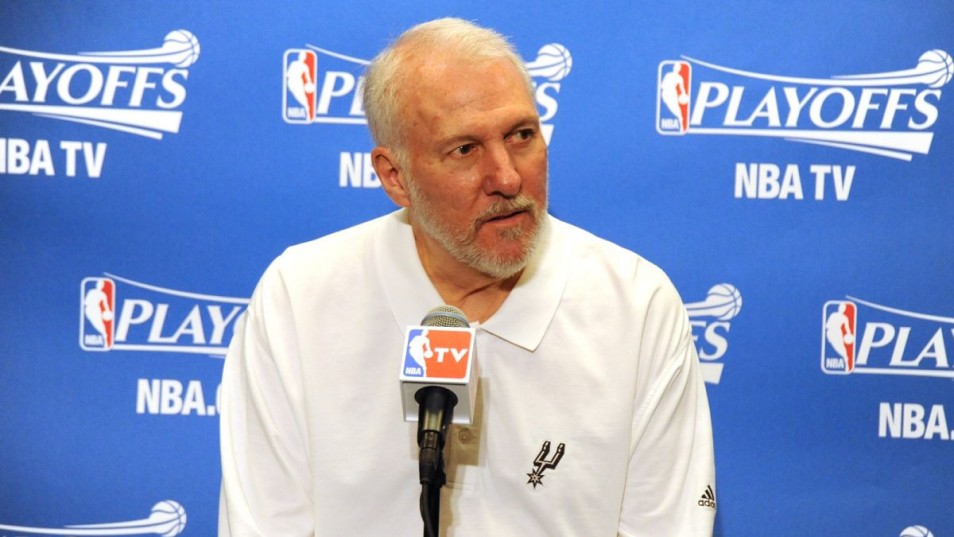We are all teachers and students of the craft of “coaching”. The subject may change, but what makes the greats great (at their level), is universal.

In fact, some of my biggest “Aha!” moments these last few years have come from my interactions with teacher-coaches in other sports. I love cross-sport learnings(…!).
So when I was contacted by soccer coach, Paul Cammarata, to talk youth sport development, I was excited. I had already read a few articles and tweets by him. And, over an hour into the conversation, my coaching brain was energized. We covered a lot, yet I felt like we were just scratching the surface.
Then he took me to task.
We often say things that, without deeper thought, look / sound / feel right. They sound valid, but they paint an incomplete picture.
Hold on. Allow me to digress for a sec…
Who Are The Best Basketball Coaches—Ever?
Let’s see… John Wooden, Pat Riley, Coach K, ‘The Zen Master’ Phil Jackson, Chuck Daley, and Gregg Popovic are a few names that jump to mind.
What do you think? Seriously. Think about it for a moment. Who jumps to mind?
Give or take one or two addition/subtractions, I doubt a bar fight would break out over my 30-seconds-of-thought list. It’s difficult to take something away from a Hall of Famer.
Put Your Best With The Best
Years ago, an Italian basketball coach, Mario DeSisti, shared a key to basketball development in Italy – over the years – was a decision to put their ‘best coaches with the youngest kids’. They had a 15-year plan to be able to compete on the international level.
That’s a complete paradigm shift compared to what is experienced in most countries. The best are working at the highest levels: NBA, NCAA, national teams, etc.
Either way, I’ve yet to come across many who would raise a warning flag at that putting the best (with the best) is a bad idea. That is until I spoke to Paul…
Everything Requires Context
“You have to have your best coaches in areas where they are at their best,” Paul said.
Huh? I mean, right. Yes, of course. I (think) I thought.
What Paul reminded me was that we often use vague words and terms. We often say things that, without deeper thought, look / sound / feel right. They sound valid, but they paint an incomplete picture.
It’s often said, winning doesn’t matter, the game is the best teacher of the game, (perfect) practice makes perfect, or they have a natural talent you can’t teach.
Context is key. “Best” is, at best, a vague term .
Popovic, for instance, is (arguably) this generation’s best basketball coach. Yet, despite it all, if you put Pop with a group of eight-year-olds, there would likely be some glaring gaps in his effectiveness with that age of an athlete.
The skill set to be a great NBA coach is specialized. The physical, mental, tactical, socio-emotional and psychological competencies are quite different from the expertise that’s required of a coach who is great at working with kids. How kids move, think, play the game, relate to one another, prioritize winning, express emotion and deal with adversity are drastically different than adults. There are similarities, but it’s not the same.
Winning matters. How much? It varies based on the context.
Is game is the best teacher of the game? It can be. (Paul makes a compelling case for why this is the most misunderstood concept in youth development.)
Does practice make perfect? And, is it true that natural talent can’t be taught? Yes. Well, maybe. It depends.
Depth Versus Breadth
What I loved about my conversation with Paul was being challenged. It wasn’t confrontational, it was uplifting. He helped deepen my articulation.
We’re coaching in a time when our ability to be exposed to more is coming at the expense of deeper .
Yoda Master MacKay shared that a player shouldn’t play faster than their vision or ability to stop will allow.
I’m realizing that this applies to us as coaches too. Resist the temptation to learn more about more. (What are the kids calling it these days: FOMO?!). Instead, seek depth over breadth.
If you’re not in a room with people who challenge how you think (about what you already feel is true), you’re in the wrong room. Well, probably… maybe… might be. Just depends on the context, I guess.
Little things make a big difference.
/sef.
UPDATE: Adding ‘play the game the right way’ and ‘missing the fundamentals’ to the list of things that sound good but have no meaning. What else is missing?
#thankthepasser: Check out Paul Cammarata’s blog The Coaching Journey and his podcast where he interviews some solid coaching minds.